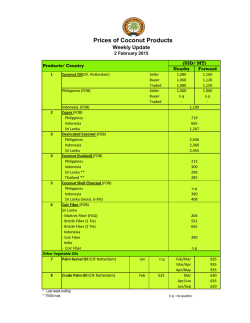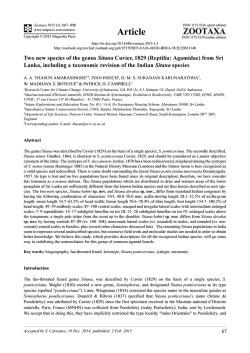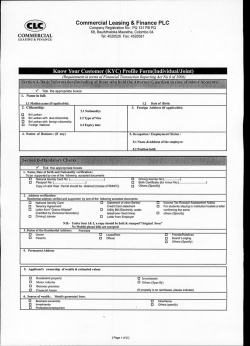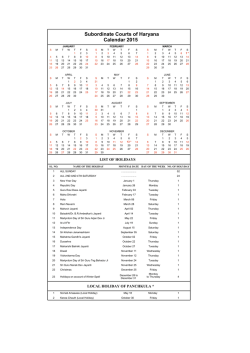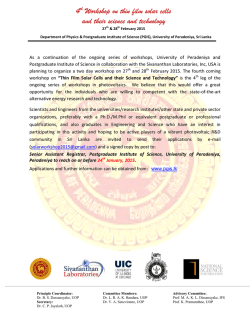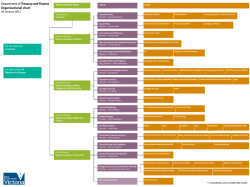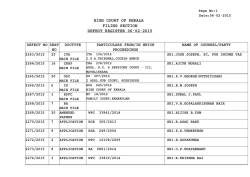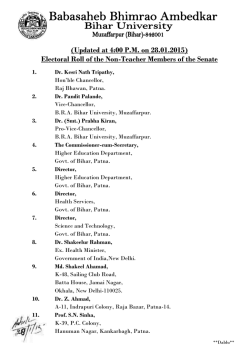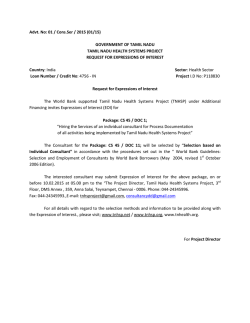
February 2, 2015 Via Electronic and U.S. Mail Assistant Secretary
February 2, 2015 Via Electronic and U.S. Mail Assistant Secretary Nisha Desai Biswal Bureau of South and Central Asian Affairs U.S. Department of State 2201 C Street NW Washington, DC 20520 Re: Recommendations for U.S. Engagement on Sri Lanka’s Human Rights Record Dear Assistant Secretary Biswal: The recent election of President Maithripala Sirisena provides opportunities for Sri Lanka to set a new course for democracy and human rights. To move forward, though, Sri Lanka must address its past, five and a half years after the end of its brutal civil war. As you visit Sri Lanka on February 2-3, the United States should consider the following steps to encourage forward momentum. First, acknowledge the positive actions the Sirisena administration has taken in recent weeks to build trust and foster reconciliation with Sri Lanka’s minority Tamil community: promising to free hundreds of Tamils from prolonged arbitrary detention; assuring the return of Tamil lands seized by the Army in the north and east; appointing a civilian governor to replace a former military official in the Northern Province; appointing a Tamil judge as the new Supreme Court Chief Justice; lifting a travel ban on foreign passport holders visiting the north; and announcing a “special statement of peace” on February 4th, to express solidarity and empathy with all victims of the conflict. These measures are significant and give hope to thousands of Tamils who are still trying to rebuild their lives after the war. The U.S. should welcome these efforts and press for additional steps, including: repeal of the Prevention of Terrorism Act, which has been used to silence those seeking information about those tortured, killed, detained and disappeared during the civil war; reform of the Criminal Investigation Division and Terrorist Investigation Division surveillance structures, which heavily monitor those living in war-affected regions; enactment of witness protection legislation to protect those who seek justice; and appointment of an independent human rights prosecutor, autonomous from the Attorney General, as recommended by Sri Lanka’s own 1994 and 1998 disappearances commissions. One Hallidie Plaza, Suite 406 San Francisco, CA 94102 tel 415 544 0444 fax 415 544 0456 [email protected] cja.org In addition, the U.S. should seek a firm commitment from the Sirisena administration on accountability, which is central to long-term reconciliation and healing. The U.S. has long urged accountability for alleged crimes committed by both sides in the final months of the war, cosponsoring the Human Rights Council resolution that created the current U.N. investigation. Despite other progress, one must be concerned that Sirisena vowed to protect former President Rajapaksa and his family from international courts during the election campaign and has since allied with former Army Commander Sarath Fonseka, who led the Sri Lankan military during the last stages of the war in 2009. Sirisena’s Cabinet Ministers have raised the possibility of a new domestic probe with foreign experts or U.N. technical assistance. But a new investigation is not what Sri Lanka needs. Families of the disappeared in war-affected regions have already provided evidence, at great personal risk, to the ongoing U.N. investigation. They have already testified before domestic commissions, including ones that engaged international experts. A fresh probe, with or without outside help, is unlikely to discover new evidence and risks re-traumatizing those who have already come forward. A new probe also means further delay, and the risk that trial-ready evidence will be lost with the passage of time. During your visit, urge the Sirisena administration to: welcome the March release of the U.N. investigation report and cooperate with the Office of the High Commissioner for Human Rights in implementation and monitoring; and take concrete steps toward prosecuting those responsible for international crimes alleged on both sides of the war, in full conformance with due process. Likewise, the U.S. should continue its leadership and co-sponsor a resolution before the Human Rights Council in March that welcomes the U.N. report; seeks concrete domestic progress; and asks the Office of the High Commissioner for Human Rights to assist in implementation and provide an update to the Human Rights Council in March 2016. President Sirisena’s first three weeks in office inspire hope. Sri Lanka has a real chance to promote healing and unity, if his administration commits to accountability. As a leader on human rights in Sri Lanka, the United States should signal its continuing commitment to accountability efforts and urge the new government to make concrete steps to ensure that those responsible for international crimes are brought to justice. Yours sincerely, Dixon Osburn Executive Director The Center for Justice and Accountability cc: John Kerry, U.S. Secretary of State Atul Keshap, U.S. Deputy Assistant Secretary of State for South Asia Tom Malinowski, U.S. Assistant Secretary of State for Democracy, Human Rights, and Labor Stephen Rapp, U.S. Ambassador-at-Large for War Crimes Issues
© Copyright 2026

